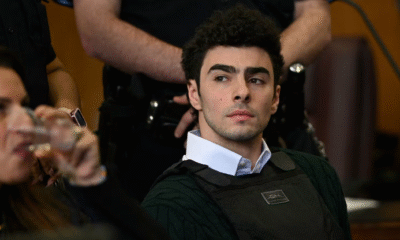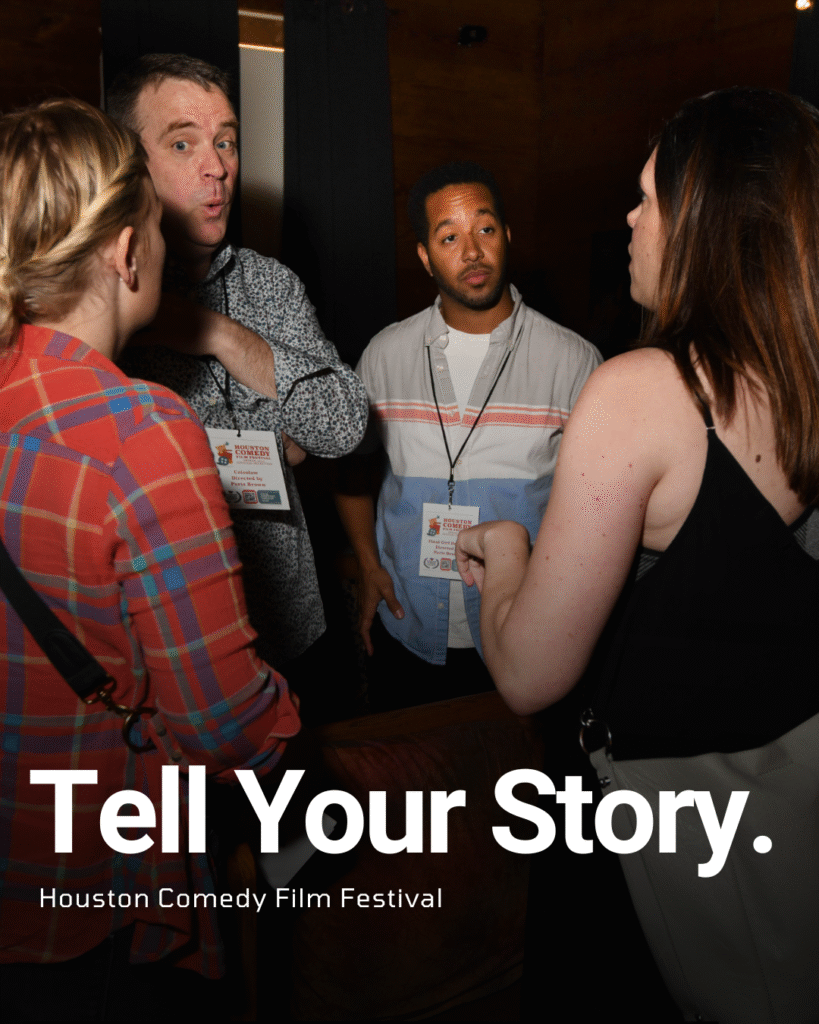Politics
The Threat of Deepfakes in the 2024 Elections
As the 2024 elections approach, a growing concern is the use of deepfakes to influence the outcome. Deepfakes are AI-generated media, such as videos, audio, or images, that appear realistic but are fabricated. This technology has advanced significantly, making it easier to create convincing deepfakes.
Recent Incidents
- In January 2024, a deepfake robocall using President Biden’s voice attempted to discourage New Hampshire voters from participating in the primary election.
- In 2023, deepfake technology was used to clone a Chicago mayoral candidate’s voice on a fake news outlet on Twitter.
Increasing Sophistication and Accessibility
- AI tools for creating synthetic media have gone mainstream, allowing for the imitation of real people’s voices and appearances.
- The technology to create convincing deepfakes has advanced, making it easier, faster, and more affordable to produce realistic fake media.
Potential Threats
- Deepfakes can be used to spread false information about candidates, manipulate political landscapes, and undermine trust in electoral processes.
- They can be employed for personalized targeting, such as providing false information about polling places to specific voters.
- AI-generated content can be used to create false “evidence” of candidate misconduct, fake videos of election workers destroying ballots, or phony emails directing voters to incorrect polling locations.
Global Concern
- Experts observe a global uptick in electoral deepfakes, with the World Economic Forum’s Global Risks Report warning of the potential for unrest, including violent protests, hate crimes, civil confrontation, and terrorism.
Regulatory Responses
- Lawmakers in 27 states introduced bills to regulate deepfakes in elections within the first six weeks of 2023.
- The FCC has ruled that robocalls using AI-generated voices are now illegal under federal telecoms law.
Tech Company Actions
- Companies like Meta, YouTube, and TikTok now require users to disclose when they post AI content.
- Google and Microsoft have announced measures to protect electoral processes from deepfakes.
Challenges in Combating Deepfakes
- The difficulty in quickly investigating and debunking deepfakes poses a significant challenge, especially in the critical period leading up to an election.
- The cost of production and dissemination of deepfakes is minimal, and they can be spread virally with minimal effort.
Potential Impact on Voter Behavior
- While deepfakes are concerning, some experts suggest that their impact may be limited due to hardened partisan loyalties and the return to pre-COVID social connections.
- However, in close elections, even a small number of people believing false information could potentially affect the outcome.
Broader Implications
- Deepfakes are not just a political issue; they have been used for harassment and abuse, particularly targeting women and potentially limiting their political participation.
- The threat of deepfakes extends beyond elections, potentially undermining trust in media and institutions more broadly.

Stay Connected
Unlock impactful advertising opportunities with Bolanle Media. Our expert team crafts immersive experiences that captivate audiences, driving brand engagement and memorability. Let’s elevate your brand’s marketing strategy together.
News
Governments Worldwide Push for Mandatory Digital IDs by 2026

Governments around the world are accelerating their push toward national digital identification systems, promising convenience and security while raising concerns over privacy, surveillance, and government control. By 2026, the European Union will require every member state to implement a national digital identity wallet, and the United Kingdom plans to make digital ID mandatory for the “Right to Work” by the end of its current Parliament.
United Kingdom Leads the Charge
In September 2025, British Prime Minister Keir Starmer announced plans for a free, government-backed digital ID system for all residents. The initiative—temporarily called “BritCard”—will become a mandatory requirement for employment checks, designed to curb illegal migration and simplify access to services such as tax filing, welfare, and driving licenses.
While the government argues that digital ID will make it “simpler to prove who you are” and reduce fraud, civil liberties groups have raised alarms. Big Brother Watch called the plan “wholly un-British,” warning it would “create a domestic mass surveillance infrastructure”.
Officials state the new system will use encryption and biometric authentication, with credentials stored directly on smartphones. For those without smartphones, the plan includes support programs and alternatives.
Europe Mandates a Digital Identity Wallet
Across the European Union, the Digital Identity Wallet—developed under the eIDAS 2.0 Regulation—will become law by 2026, obligating all 27 member states to provide citizens with a secure app that integrates identification, travel, and financial credentials. The European Commission envisions the wallet as a single login for public and private services across borders, from banking to healthcare, using cryptographic protections to ensure data privacy.

United States Expands Mobile IDs
The United States does not have a national digital ID system but is quickly adopting state-level mobile IDs. More than 30 states have launched or are testing digital driver’s licenses stored on phones via Apple Wallet, Google Wallet, or state apps. States such as Louisiana and Arizona already accept mobile IDs for TSA airport checks, and similar legislation is advancing in New Jersey, Pennsylvania, and Georgia.
Meanwhile, private firms like ID.me and CLEAR have enrolled millions of Americans in digital identity programs, often partnering with government agencies and raising questions about data use and inclusion for low-income groups.
Global Adoption and UN Involvement
The trend extends well beyond Western nations. China’s national digital ID, launched in 2025, is connected to its social credit system, combining financial records, travel rights, and online behavior tracking. Singapore, South Korea, Nigeria, and the UAE have each implemented government-backed ID systems that link citizens’ digital credentials to public and private services ranging from taxes to utilities.
The movement aligns with the United Nations’ goal of providing “legal identity for all by 2030,” supported by the World Bank’s ID4D (Identification for Development) initiative, which funds digital identity infrastructure in over 100 countries.
The Promise and the Peril
Proponents argue that digital IDs offer protection against identity fraud, save governments billions in paperwork, and bring roughly one billion undocumented citizens into legal recognition systems globally. Estonia, for instance, saves an estimated 2% of its GDP annually through digitized services, while India’s Aadhaar ID has reduced welfare fraud by $10 billion per year.
However, critics warn that centralizing identity creates unprecedented control risks. Once personal data, biometrics, and financial access are linked, governments could more easily restrict rights or track behavior.
As one analyst put it, the shift may mark “a turning point in the balance of power between citizens, corporations, and the state”.
The global rollout of digital IDs is reshaping the definition of identity itself—raising the question of whether convenience and efficiency come at too high a cost to freedom.
Politics
Divided and Deadly: When Political Hatred Turns Fatal

America’s political divide is no longer just a metaphor—it’s now a measurable, chilling reality. In recent weeks, a relentless barrage of violence has brought headline after headline: the assassination of Charlie Kirk on September 10th, bomb threats and failed attempts targeting news crews, shootings at public gatherings, attacks on federal agents, and online mobs openly glorifying the carnage. What once seemed fringe or exceptional is now undeniably mainstream. The unthinkable is becoming all too routine.
Consider this: within days of Kirk’s assassination, a Fox News van parked at the crime scene in Utah was targeted by a bomb that narrowly failed to detonate, followed by bomb threats at the home of presidential candidate RFK Jr. Shootings tied to political slogans erupted at a New Hampshire country club and inside a news station, with attackers leaving manifestos and warning that “Trump officials would be next.” Meanwhile, federal ICE agents were ambushed in Chicago by carloads of heavily armed assailants—another event spun by legacy media as if it was government aggression, rather than a defensive response to an act of terror.

This surge in violence is not happening in a vacuum. It emanates from decades of tolerated, even celebrated, dehumanization across the political spectrum. But, in Brett Cooper’s telling—and in the disturbing texts and rhetoric unearthed in the wake of these tragedies—the epicenter appears to be one party’s willingness to excuse, justify, or even cheer political assassination. Cooper highlights not just one-off outbursts, but prominent Democratic politicians openly wishing death and horror on their opponents, their families, and even their children. The infamous leaked texts from Virginia’s Jay Jones—expressing desire to see innocent children die “so that their father would change his opinions”—read like a dystopian novel come to life. Yet, defenders line up, brushing it off as “mistakes” and framing any criticism as partisan smears.
How did this become the new normal? The left, argues Cooper, has marinated in a protest culture that sanctifies violence as a substitute for persuasion. Losing an election, a court case, or a policy fight now justifies open calls for revenge. Online, the rhetoric is as gruesome as the reality, with political adversaries not simply derided, but declared subhuman and unworthy of life—a chilling echo of history’s darkest chapters.
Of course, political violence can never be blamed on rhetoric or ideology alone. But words have consequences. Leaders who flirt with calls for violence set the tone for every zealot and unstable mind. The celebration of real-world killings by online mobs only entrenches a cycle where each incident of bloodshed is either weaponized or excused, not universally condemned.
Perhaps most dangerous is the media’s shifting lens—the effort to muddy attacks with claims of ambiguity about motive or to frame self-defense by government officers as wanton aggression. The danger isn’t just physical, but moral and cultural: when outrage at assassination gives way to tribal excuses, a nation chips away at its own foundation.
In a world this divided and deadly, Cooper’s advice feels both practical and poignant: focus on the real, the local, the communal. Sit down with family. Turn down the temperature wherever possible. Call out inhumanity—no matter who it comes from.
America’s most urgent debate is not just about policy, but about whether political disagreement must now also mean existential threat. If ever there was a time for collective soul-searching, it is now—when headlines show, beyond a shadow of a doubt, that political hatred can, and does, turn fatal.
News
How a Government Shutdown Could Hit Your Life and Wallet

What a Shutdown Means for You
When Washington can’t agree on funding, government operations grind to a halt—and millions feel the ripple effects. Whether employed by a federal agency, planning a trip, or just waiting for a tax refund, the shutdown’s reach can extend into daily life in unexpected ways.

Paychecks and Local Economies
Federal employees are on the frontline, facing furloughs or delayed pay. If you or someone in your household works for the government, this means missed or postponed earnings—sometimes for weeks. Local businesses feel the squeeze when those employees cut back on spending, and contractors dependent on federal clients might also see sudden layoffs and lost projects.
Services and Everyday Disruption
From longer airport lines to shuttered national parks, public services can stall or close entirely. Waiting on a passport renewal, Social Security verification, or a student loan application? Those processes may be paused, causing headaches and delays that interrupt travel plans, business operations, or educational goals.
Health Care Worries
Shutdowns often spark fierce debates over health care policy. If negotiations stall, federal insurance tax credits could vanish, causing health premiums to spike for millions. For some, especially those relying on government-supported coverage, this means losing insurance altogether—a risk that could affect up to four million Americans if deadlock persists.
Impact on the Economy and Markets
Travel slows as essential agencies are stretched thin and parks close, costing the travel industry as much as $1 billion each week the shutdown lasts. Economic data releases used by the Federal Reserve and investors can also be delayed, muddying the outlook for businesses and individuals watching inflation or employment figures.
The Real-Life Cost
A government shutdown isn’t just a political fight—it’s an event that can upend plans, impact paychecks, delay vital services, and create stress for families nationwide. History shows most communities bounce back, but for those caught in the crossfire, the effects are personal and immediate.

 Business3 weeks ago
Business3 weeks agoWhy Are Influencers Getting $7K to Post About Israel?

 Health4 weeks ago
Health4 weeks agoWhy Did Gen Z QUIT Drinking Alcohol?

 Advice4 weeks ago
Advice4 weeks agoHow AI Is Forcing Everyone Into the Entrepreneur Game

 Entertainment3 weeks ago
Entertainment3 weeks agoKeith Urban and Nicole Kidman Split After 20 Years as Actress Files for Divorce

 Entertainment3 weeks ago
Entertainment3 weeks agoTilly Norwood’s Rise Stirs Controversy

 News3 weeks ago
News3 weeks agoHow a Government Shutdown Could Hit Your Life and Wallet

 Entertainment4 weeks ago
Entertainment4 weeks agoWhy Did Dakarai Trash His NBA Letters?

 Business3 weeks ago
Business3 weeks agoOverqualified? Great, Now Prove You’ll Work for Free and Love It!






































